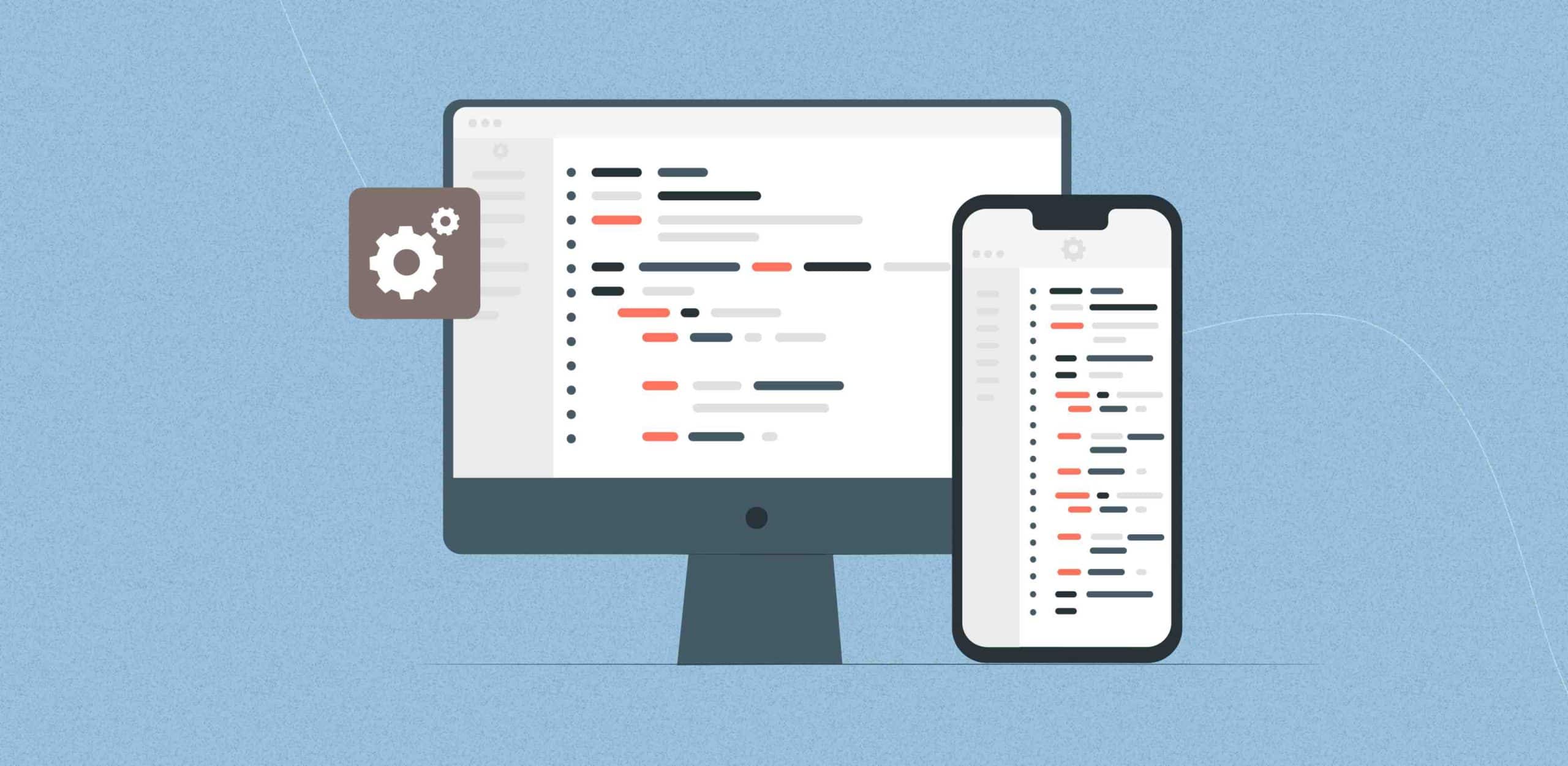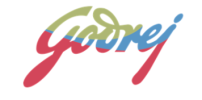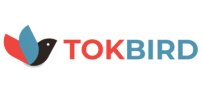eLearning app development has rapidly become a pivotal force in transforming education globally, driven by the swift evolution of technology across various industries. Standing at the forefront of democratizing learning, this domain merges innovative tech with educational needs to create accessible, engaging educational platforms. This blog will explore what constitutes eLearning app development, discuss the current trends, delve into future innovations, and examine the development process.
What is eLearning app development?
eLearning app development involves creating applications dedicated to educational processes and training. These apps provide accessible learning materials and interactive features on various devices, including smartphones, tablets, and computers, enabling learners to study at their own pace and convenience. An effective eLearning app development company combines expertise in educational principles with the latest technological advances to create engaging and effective learning experiences.
What are the key trends in eLearning app development?
The landscape of eLearning app development is continually evolving, driven by technological advancements and changing user demands. Staying ahead of the curve in this dynamic field involves understanding and integrating the key trends that are currently shaping it. These trends not only enhance the learning experience but also ensure that the content is accessible, engaging, and tailored to the needs of today’s learners. Let’s explore some of the most influential trends in eLearning app development:
Microlearning
Microlearning breaks down educational content into small, manageable units, making it easier for learners to digest and retain information. This approach is particularly beneficial for modern learners who face time constraints and prefer quick learning sessions to long lectures. By focusing on one concept at a time, microlearning facilitates better attention management and higher retention rates, making it an efficient method to build knowledge incrementally.
Gamification
Gamification enhances eLearning platforms by integrating game design elements such as points, levels, and rewards. This approach transforms learning into a more engaging and interactive experience, motivating learners by tapping into their intrinsic desires for competition and achievement. Gamification not only makes the learning process fun but also encourages continued engagement, helping learners achieve their educational goals in an enjoyable manner.
Mobile-First Design
The mobile-first design trend prioritizes the development of eLearning applications with mobile devices in mind. As the number of smartphone users continues to grow, it becomes essential to ensure that educational apps are optimized for smaller screens and touch interfaces. This trend enhances the accessibility of learning materials, allowing learners to access courses and resources on the go, seamlessly integrating education into their daily routines.
Hybrid Learning
Hybrid learning combines online and traditional face-to-face educational experiences. This flexible approach allows institutions to offer more personalized education and cater to different learning styles. Hybrid models are particularly valuable in scenarios where complete virtual learning is not feasible, providing a balanced approach that leverages the best of both worlds.
Cohort-Based Learning
Cohort-based learning organizes learners into specific groups that progress through content together. This method fosters a sense of community and accountability, enhancing learning through peer interactions and collaborative activities. Cohort-based approaches are especially effective in scenarios where teamwork and communication are crucial to the learning objectives.
Social Learning
Social learning integrates the social aspects of learning into digital platforms, enabling users to learn from peers, share knowledge, and collaborate on projects. This trend leverages the power of community and networking to enhance learning outcomes and make the educational process more engaging.
Mobile Learning
Mobile learning, or mLearning, emphasizes learning through mobile devices, providing flexibility to learn anywhere and anytime. This trend is in response to the increasing use of mobile devices and the demand for learning that fits into busy schedules without being confined to a physical classroom or specific time frames.
Video-based Learning
Video-based learning uses video content to deliver instructional material. Videos can make learning more dynamic and visually engaging, helping to explain complex information through visual and auditory elements. This trend catiles to a wide range of learning styles, particularly benefiting visual learners who prefer to see concepts in action.
What are the future projections and innovations in eLearning app development?
The future of eLearning app development is rich with potential, thanks to the integration of several cutting-edge technologies. These advancements promise to revolutionize the educational landscape by making learning more interactive, personalized, and secure.
Artificial Intelligence (AI)
AI in eLearning facilitates the creation of adaptive learning systems that analyze learner performance to tailor content, ensuring a personalized educational experience. This can include features like automated grading, personalized learning paths, and predictive analytics that anticipate learner needs.
Augmented Reality (AR) and Virtual Reality (VR)
AR and VR technologies immerse learners in highly interactive environments that simulate real-life scenarios. This is particularly beneficial in fields requiring hands-on training, such as medicine, engineering, and science. For instance, VR can simulate surgical procedures for medical students, providing practical experience in a risk-free setting.
Blockchain Technology
Blockchain can enhance the security and transparency of educational transactions and credentials. It ensures that educational records are tamper-proof and easily verifiable, which is crucial in maintaining the integrity of certifications and learner achievements. Additionally, it can manage intellectual property rights and streamline payment processes within educational platforms.
5G Technology
The rollout of 5G technology promises enhanced connectivity that will improve the performance of eLearning applications. With higher speeds and reduced latency, 5G will enable more efficient use of AR and VR in education, facilitating real-time interactions and smoother experiences in bandwidth-intensive applications.
Contact us today, and let’s discuss how we can assist you in achieving your eLearning goals.
eLearning app development process
Developing an effective eLearning application involves a structured approach that spans from conceptualization to deployment and beyond. Here’s a detailed breakdown of each stage in the eLearning app development process:
Idea and Market Research
The first step in developing an eLearning application is to understand the needs of your target audience and identify existing market gaps. This involves conducting thorough market research to gather insights about potential users’ preferences, learning styles, and the types of content they find most beneficial. It’s also important to analyze competitors to determine what is already available and identify opportunities for innovation. This stage helps in shaping a clear value proposition and defines the unique selling points of your app.
Design and User Experience
The design phase focuses on creating an intuitive and user-friendly interface that enhances the learning experience without overwhelming the users. This involves the creation of wireframes and prototypes to visualize the app’s layout and navigation structure. User experience (UX) designers work to ensure the app is accessible to all users, including those with disabilities, by adhering to UX best practices and accessibility standards. Effective eLearning apps often incorporate interactive elements such as quizzes, drag-and-drop activities, and multimedia content to keep learners engaged.
Content Development
Content is the core of any eLearning application. This step involves creating or curating educational content that is both informative and engaging, and aligned with the defined learning objectives. Content developers and instructional designers work together to structure content in digestible modules that facilitate easy learning. They also incorporate various multimedia elements like videos, images, infographics, and podcasts to cater to different learning preferences and enhance retention.
Technical Development
In the technical development phase, developers choose the right technologies and platforms to build the app. This decision is crucial as it affects the app’s functionality, scalability, and compatibility with different devices and operating systems. Developers must ensure that the app is scalable to accommodate a growing number of users and content updates. They also need to integrate various APIs for functionalities like social sharing, push notifications, and data analytics.
Testing and Feedback
Rigorous testing is crucial to ensure the app is free from any technical flaws and delivers a smooth user experience. This phase involves multiple stages of testing, including unit testing, integration testing, and user acceptance testing (UAT). Feedback from beta testers can provide valuable insights into user experience and satisfaction, which can be used to make final adjustments before the public release.
Launch and Updates
After thorough testing, the app is ready for launch. However, the development process does not end with the launch. Post-launch, it is essential to continuously monitor the app’s performance and user engagement. Regular updates are necessary to address any emerging issues, add new features, and keep the content up-to-date with the latest educational trends and technologies. This ongoing maintenance ensures that the app remains relevant and continues to meet the evolving needs of learners.
How to choose an eLearning app development company for your business?
Choosing the right eLearning app development company is crucial for the success of your digital learning initiatives. Here are some key considerations to keep in mind when selecting a partner for developing your eLearning app:
Understand Your Objectives and Requirements
Before reaching out to potential development partners, clearly define what you aim to achieve with your eLearning application. Consider the target audience, the type of content you want to deliver, and the learning outcomes you intend to achieve. Understanding your requirements in detail will help you communicate your vision effectively and assess whether a company can meet your needs.
Check Their Expertise and Experience
Look for a company that has extensive experience in eLearning app development. Review their portfolio to see the types of learning apps they have developed in the past. Experience in your specific educational sector, such as K-12, higher education, or corporate training, can be a significant advantage. This not only shows their capability to handle diverse educational content but also their understanding of different learning environments.
Evaluate Their Technical Skills
The right eLearning app development company should have robust technical expertise across various platforms and technologies. Whether you need a native app for iOS and Android or a cross-platform solution, the company should demonstrate a strong track record in these areas. Additionally, they should be proficient in the latest technologies such as AR/VR, AI, and machine learning, which are becoming increasingly important in creating interactive and personalized learning experiences.
Consider Their Approach to UX/UI
The effectiveness of an eLearning app heavily depends on its user experience (UX) and user interface (UI). An intuitive and engaging design can significantly enhance learners’ engagement and retention rates. Evaluate the company’s previous projects for their UX/UI design capabilities. A good development partner should prioritize a seamless and accessible design that aligns with modern UX/UI trends.
Assess Their Commitment to Quality and Scalability
A competent eLearning app development company should not only deliver a high-quality product but also ensure that the app is scalable. As your eLearning program grows, your app should be able to support more users and more complex functionalities without performance issues. Inquire about their testing and quality assurance processes, and check if they offer ongoing support and maintenance after the app’s launch.
Discuss Budget and Timeline
Finally, discuss your budget and timeline expectations with the eLearning app development company. It’s important to find a partner who can deliver a high-quality product within your budget constraints and timeline. Transparent communication about costs and project deadlines right from the start can help prevent misunderstandings and ensure a smooth development process.
Conclusion
As we continue to witness remarkable advancements in technology, the eLearning sector is set for profound transformations. Staying abreast of the latest eLearning trends and innovations is crucial for anyone involved in educational technology. eLearning app development is not just about coding an app but about creating a learning ecosystem that is effective, engaging, and continually evolving. Whether you are an educator, a developer, or an e-learning app development company, embracing these changes can provide unprecedented opportunities in the world of education.
If you’re ready to take the next step in eLearning by implementing or custom-developing a solution tailored to your specific needs, don’t hesitate to reach out. Our team specializes in creating dynamic educational applications that are not only aligned with the latest trends but also customized to enhance learning outcomes. Contact us today to discuss how we can help you transform the educational experience with cutting-edge eLearning app solutions.
Let’s transform your business for a change that matters.
F. A. Q.
Do you have additional questions?
What is eLearning app development?
eLearning app development involves creating digital applications that facilitate learning and training. These apps provide interactive and accessible educational content on various devices like smartphones, tablets, and computers.
What are the current key trends in eLearning app development?
Current trends include microlearning, gamification, mobile-first design, the use of AI, AR and VR technologies, and hybrid learning models, each enhancing learning engagement and accessibility.
How is Artificial Intelligence changing eLearning?
AI in eLearning personalizes learning experiences by adapting content based on the learner’s pace and preferences. It also aids in creating adaptive assessments and automating administrative tasks.
What Role do AR and VR Play in eLearning?
AR and VR technologies create immersive learning experiences that simulate real-world scenarios. These tools are particularly effective in training for complex tasks and visualizing abstract concepts in a tangible way.
Why is mobile-first design crucial in eLearning?
With the increasing use of mobile devices, designing eLearning applications with a mobile-first approach ensures that learning resources are optimized for mobile usage, providing greater accessibility and convenience.
What are the future innovations expected in eLearning app development?
Future innovations include more integrated use of blockchain for secure credentialing, enhanced AI-driven personalization, wider adoption of 5G for improved connectivity, and advanced uses of AR and VR for immersive learning.
What should I look for when choosing an eLearning app development company?
Key aspects to consider include the company’s experience in eLearning projects, technical expertise, their approach to UX/UI design, their portfolio, client testimonials, and their ability to deliver scalable solutions.
How can eLearning apps improve learning outcomes?
eLearning apps improve learning outcomes by providing flexible, personalized learning experiences. Interactive features and multimedia content can enhance engagement and retention.
What is the typical process for developing an eLearning app?
The process typically includes market research, UX/UI design, content development, technical development, testing and feedback, and post-launch updates and maintenance.
How can i ensure the quality of an eLearning app?
Ensuring quality involves rigorous testing stages, continuous user feedback incorporation, and selecting an experienced development team that follows best practices in design and technical development.














